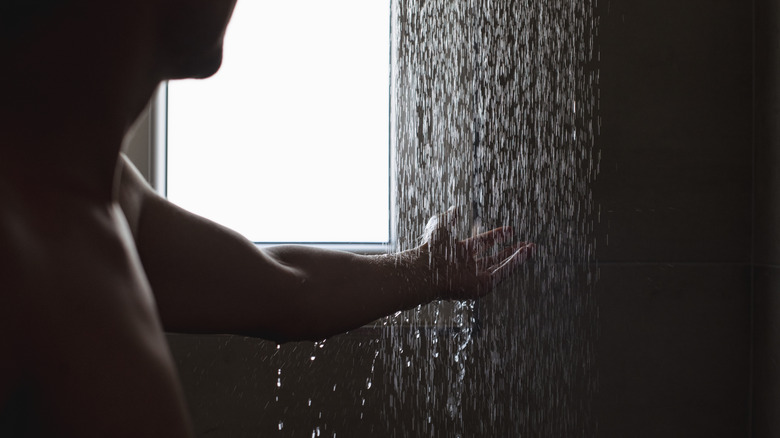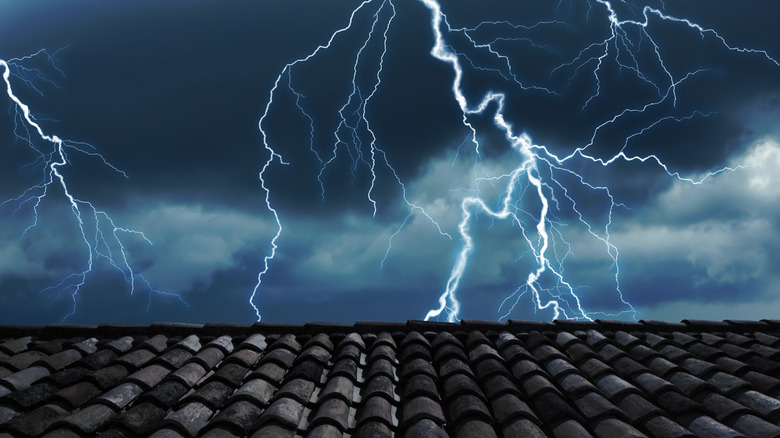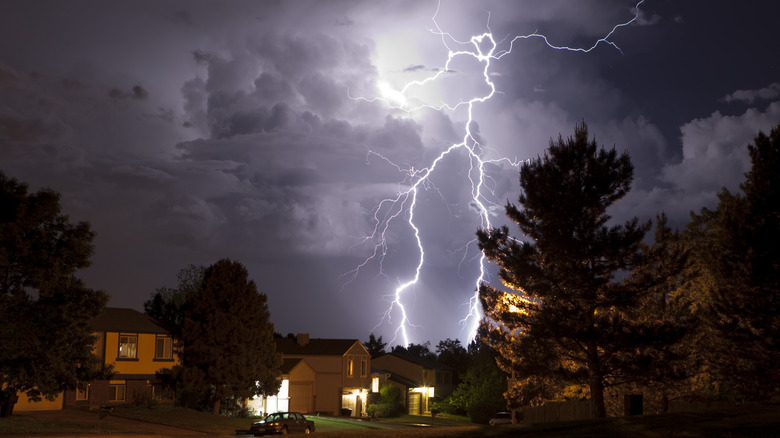Is It Safe To Shower During A Storm? What You Need To Know
When thunder roars, you might wonder if it's safe to take a shower. The short answer is: No, it is not safe. While the odds of getting struck by lightning in your home are incredibly low, you are not completely immune, especially when you're in the shower. The main reason for this risk is that lightning can travel through metal pipes and water, both of which are excellent conductors for electricity. Although many modern homes now use plastic pipes (which do not conduct electricity) for plumbing, lightning can still travel through any metal pipes and fixtures that are connected to them. This creates a potential path for the electrical current to reach you.
The concern isn't just about the water itself. Lightning strikes can cause a surge of electricity to travel throughout the metal pipes, fixtures, and even wiring in your home. This is the same principle that makes it dangerous to use a landline while a storm is raging, among other common household activities you should avoid during a thunderstorm. While electricity prefers the path of least resistance, it takes all available paths; the metal components of your shower (the shower head, faucet, and drain) provide an easy and direct route. This is why you have likely heard that it is not safe to shower, wash dishes, or use appliances that use water during a storm. Heck, even the MythBusters determined this is a plausible danger, as did the National Weather Service and Centers for Disease Control.
How lightning enters your home during a storm
Lightning does not have to strike your house directly in order to cause a problem. It can strike a nearby tree, a utility pole, or even the ground, and the electrical current can still travel through the ground and into your home's electrical and plumbing systems. It's a common misconception that being indoors makes you 100% safe from lightning strikes; while you are significantly safer inside than out, a lightning strike is a powerful force of nature that can find its way into your home through various avenues.
The electrical surge from a lightning strike can be incredibly powerful, on average carrying 300 million volts of electricity. When this surge enters your home, it looks for the easiest path to the ground. And unfortunately, many of the items we use every day (think: appliances, electronics, and even our plumbing) can be part of just such a path. This is why it is also a good idea to unplug sensitive electronics during a storm. In the case of plumbing, electricity can travel through pipes and discharge into water or through the metal fixtures we touch. This is why thunderstorms aren't just a concern for showers, but for baths and even sinks. You can attempt to remedy this, however, by installing a lightning protection system in your home.
How to stay safe during a storm
The verdict is clear: It is not safe to shower during a thunderstorm. While the risk of being struck by lightning while in the shower is low, it is not a zero-risk scenario. Lightning can travel through your plumbing, and even if your home uses plastic pipes, their metal fixtures still potentially pose a shock risk. Any surges from a strike are powerful enough to be deadly, and it is simply just not worth taking the chance.
To stay even safer during a storm, it's best to avoid all contact with running water. Besides showering, this includes using your sink, washing clothes, and running your dishwasher during a thunderstorm. What's more, it is also a good idea to stay off landline telephones and unplug electronic gadgets like TVs, desktop computers, printers, and plugged-in smartphones and tablets. Remember that the safest place to be during a thunderstorm is inside away from any windows, and not touching any electrical appliances, plumbing fixtures, or water. Take it as an opportunity to read a book or play a board game. By taking these simple precautions, you can significantly reduce your risk of injury and stay safe until the storm passes.


